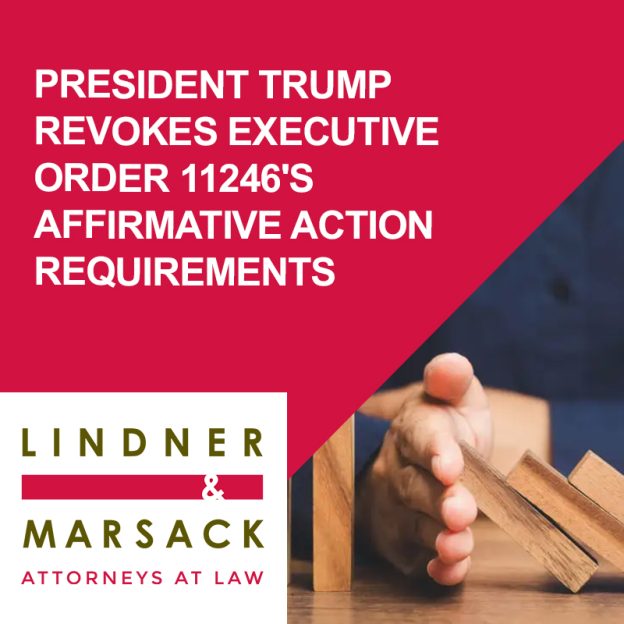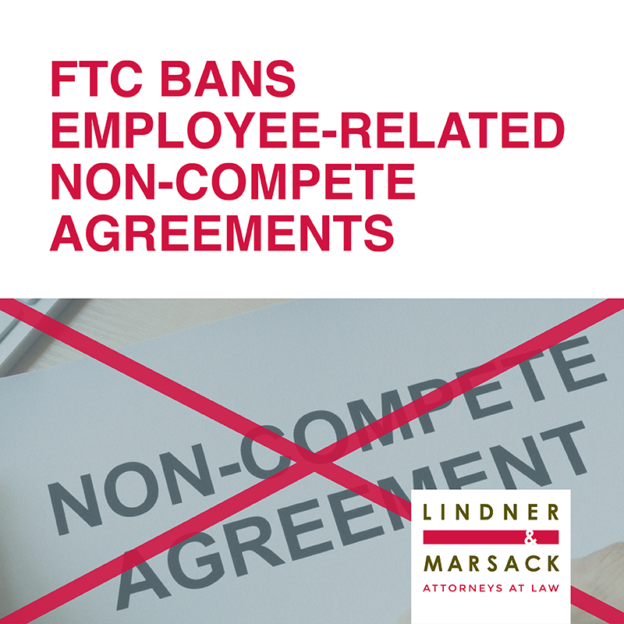By: Samantha J. Wood February 12, 2025 On January 21, 2025, President Trump issued an Executive Order titled “Ending Illegal Discrimination and Restoring Merit-Based Opportunity.” This Order revokes Executive Order 11246 (signed in 1965), which historically required federal contractors and subcontractors to take affirmative action initiatives to ensure applicants and employees were treated without regard […]



